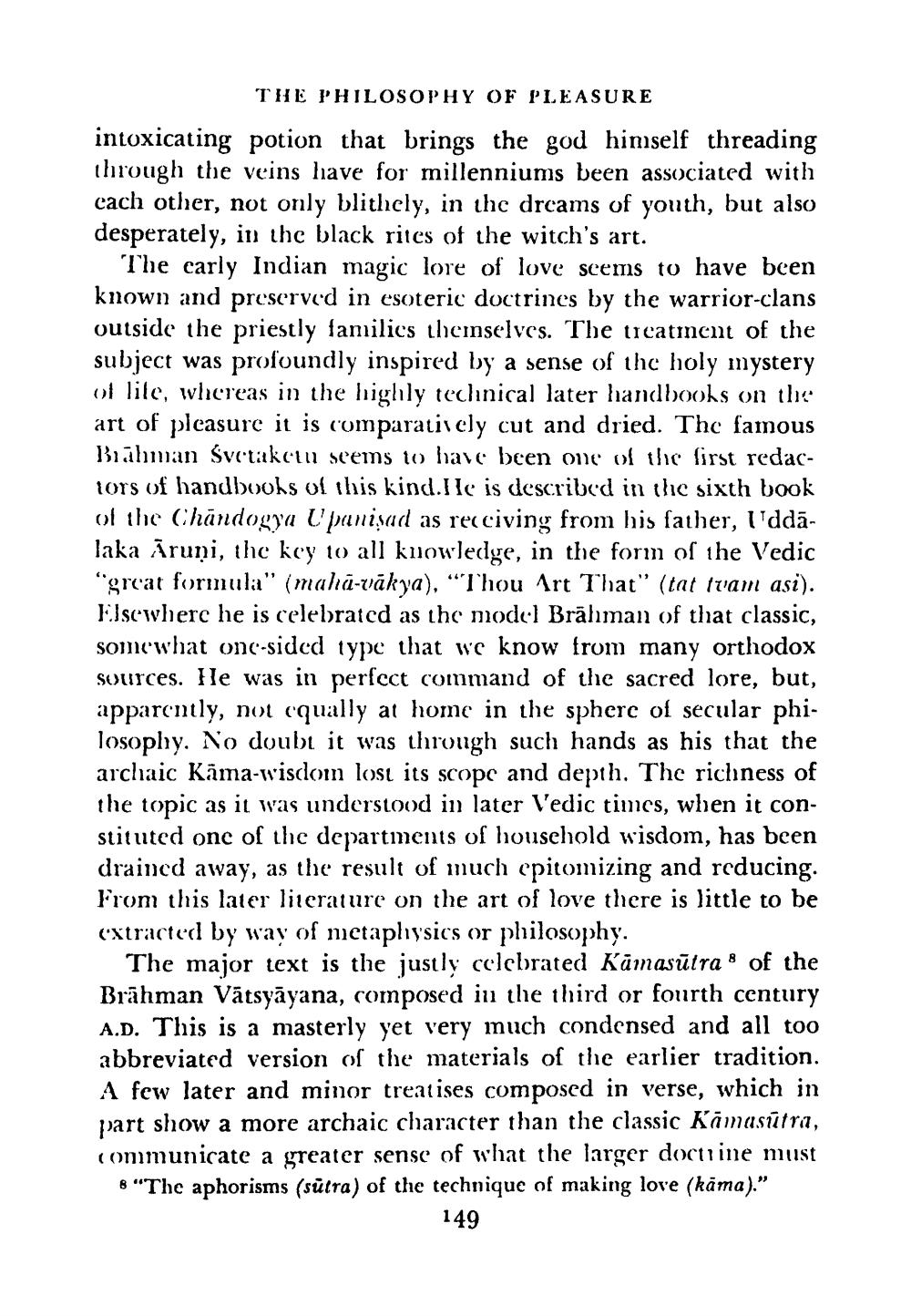________________
THE PHILOSOPHY OF PLEASURE intoxicating potion that brings the god himself threading through the veins lave for millenniums been associated with cach other, not only blithely, in the drcams of youth, but also desperately, in the black rites of the witch's art.
The carly Indian magic lore of love seems to have been known and preserved in esoteric doctrines by the warrior-clans outside the priestly families themselves. The treatment of the subject was profoundly inspired by a sense of the holy mystery of life, whereas in the highly reclinical later landbooks on the art of pleasure it is comparatively cut and dried. The famous Brahman Svetakou seems to have been one of the first redactors of handbooks of this kind.lle is described in the sixth book of the Chandogya Upanišad as recciving from his father, I'ddālaka Āruņi, the key 10 all knowledge, in the form of the Vedic "great formula" (mahā-vākya), “Thou Art That" (tat fram asi). Elsewhere he is celebrated as the model Brāliman of that classic, somewhat one-sided type that we know from many orthodox sources. He was in perfect command of the sacred lore, but, apparently, not equally at home in the sphere of secular philosophy. No doubt it was through such hands as his that the archaic Käma-wisdom lost its scope and depth. The richness of the topic as it was understood in later Vedic times, when it constituted onc of the departments of household wisdom, has been drained away, as the result of much epitomizing and reducing. From this later literature on the art of love there is little to be extracted by way of metaphysics or philosophy.
The major text is the justly celebrated Kamasutra 8 of the Brāhman Vātsyāyana, composed in the third or fourth century A.D. This is a masterly yet very much condensed and all too abbreviated version of the materials of the earlier tradition. A few later and minor treatises composed in verse, which in part show a more archaic character than the classic Kamasutra, communicate a greater sense of what the larger docuine must B "The aphorisms (sūtra) of the technique of making love (kāma)."
149




